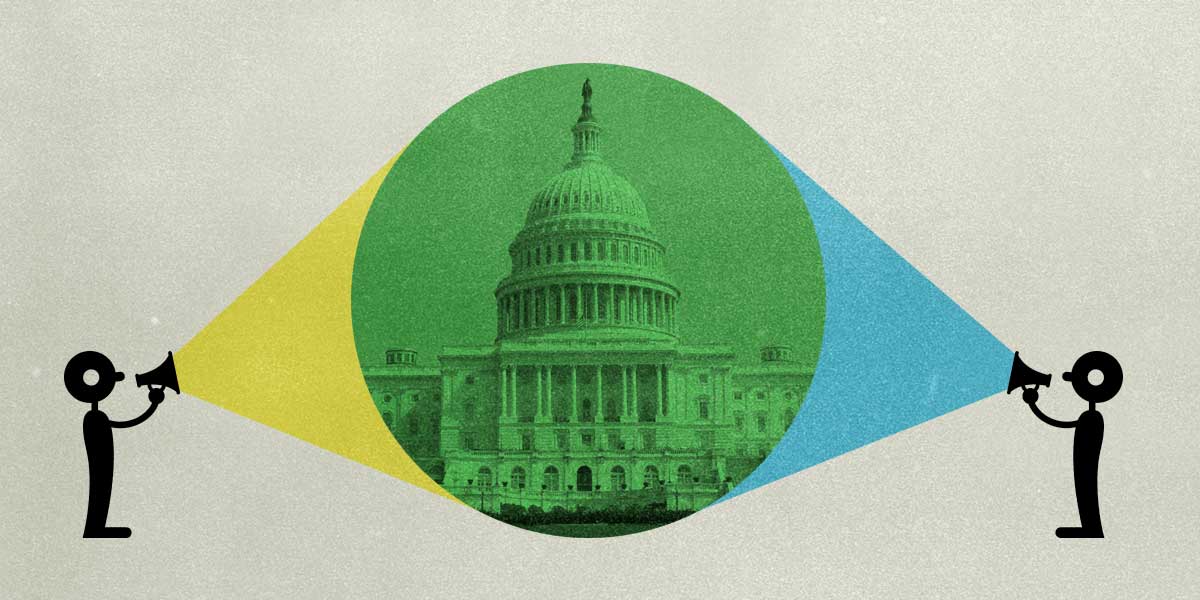It’s August. In the United States, that means members of Congress will be swinging back home to their home districts to check in with their state-side staffers, hit some fundraisers, and maybe host a few public events.
You can meet them. Constituents can request meetings with members of Congress while they are home this August by contacting their local congressional offices. If you coordinate a meeting request with a few local allies, you’ll likely be able to meet with staffers, and you may even be able to meet with your member of Congress herself.
Meetings like this matter—a lot. When members hear repeatedly from multiple constituents about overlapping concerns, those views can influence how they vote on policy issues, especially if they think those concerns will animate controversy that might complicate their careers. With so many issues vital to digital rights looming in the congressional calendar, this August is a critical time for Internet users to pressure Congress to do the right thing on mass surveillance, net neutrality, and rules that insulate platforms for liability based on content written by users.
Here are some of the key issues to bring up this August, whether in meetings with your Members of Congress, or when writing for public audiences:
Ending mass surveillance under Section 702 of the FISA Amendments Act
At the end of the year, a key provision of U.S. surveillance law is set to expire, Section 702. This is the law underpinning the NSA’s mass surveillance of Internet communications—including content—of foreign persons outside the United States, who of course communicate with Americans. Thanks to the Snowden revelations, we now know that millions of Americans are impacted by this surveillance (the exact number of which the government refuses to disclose) and Congress must vote to either reauthorize the law, or allow it to expire as scheduled. We know Congress will take this up in the next few months, so now is the ideal time to deliver a simple message: this surveillance is unconstitutional and unacceptable, and Congress should allow this dangerous provision to expire unless it first enacts significant reforms to curtail mass surveillance powers. Above all, Congress should resist attempts to make this provision of law permanent by insisting that any potential re-authorization include a five-year sunset.
Defending protections that enable free expression on the Internet
There's a dangerous new threat in Congress to your right to free speech and expression online, and it's already gained the support of a frightening number of lawmakers. The Stop Enabling Sex Traffickers Act (SESTA, S. 1693) wouldn’t help punish sex traffickers. What it would do is drastically weaken 47 U.S.C. § 230 (commonly known as "CDA 230" or simply “Section 230”), one of the most important laws protecting free expression online. It would expose startups that run online services to the risk of overwhelming criminal and civil liability for the actions of their users. Sex trafficking is a serious problem, and Congress should be applauded for turning its attention to it, but this bill is not the solution. We support a clear message to Congress: don't support SESTA or any other attempt to weaken protections for online speech under Section 230. If you run or work in a business that relies on Section 230 protections, then explain to your members of Congress how SESTA would threaten your job.
Defending net neutrality rules that preserve equal opportunity online
A few months ago, incoming Federal Communications Commission Chair Ajit Pai announced his plans to eliminate the clear, enforceable protections for net neutrality that the Commission had implemented in 2015. People have filed a record-breaking 18 million comments with the FCC, the majority of them opposing the Commission’s plan to roll back protections for net neutrality (and it’s not too late to submit your own). Now, Congress is planning a hearing on the issue in September. Members of Congress must hear from their constituents that net neutrality protections are essential for our right to communicate and organize online. Without the FCC’s light-touch rules protecting net neutrality, corporate and other dominant voices would be able to pay for fast lanes, leaving competing startups, whistleblowers, or people with minority views without access to a fair playing field. Tell your Member of Congress why a free, open, and content-neutral Internet matters to you and your community. Finally, if you can visit Washington in September, sign up to join the fly-in day to defend net neutrality.







